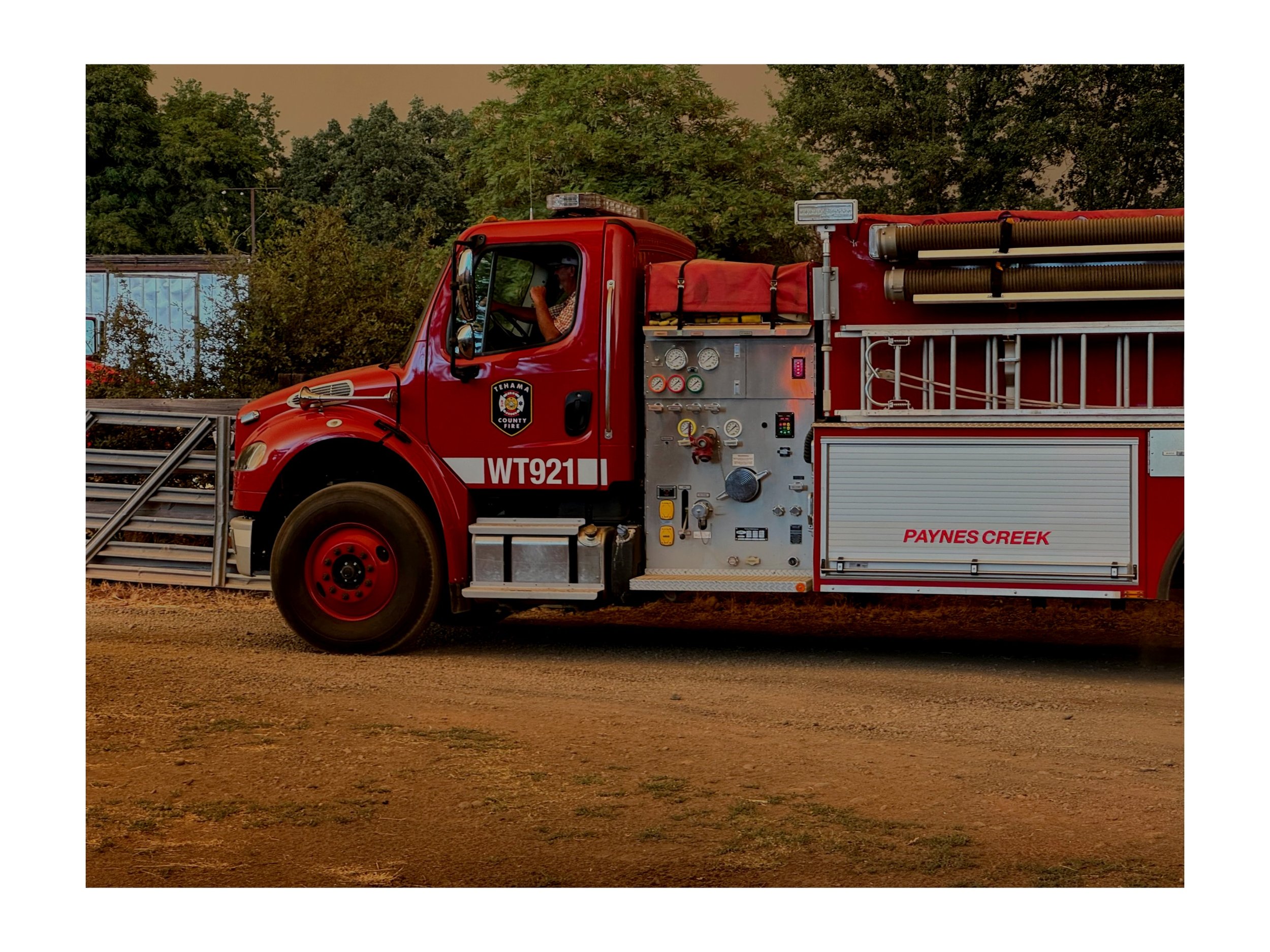
The Heart of Resilience at Zane Ranch
Written by Masie Skelton
Resiliency has become a trending word in California agriculture, symbolizing the ability to endure and overcome the multitude of challenges farmers and ranchers face. I think the word "resilient" captures the complexity of agricultural life, embodying the strength, adaptability, and perseverance required to thrive despite adversity. In agriculture, resilience is more than just a trait; it is a way of life.
At the heart of this resilient spirit lies Zane Ranch in Paynes Creek, California, in the Sierra Nevada foothills. For my grandparents, Steve and Peggy Zane, Zane Ranch is more than a home—it is a legacy, and a livelihood built on decades of hard work and sacrifice. Over the summer, a formidable hardship threatened that livelihood, one that continues to challenge my family even nine weeks later. Growing up, I was fortunate to be raised so close to my grandparents and to experience the agricultural way of life firsthand, which has wholly defined who I am and the values I hold to this day. In my rural hometown, agriculture is more than an industry; it is the lifeblood of the community. It encourages a sense of belonging and shared responsibility, where neighbors are as close as family and everyone understands the meaning of hard work. My grandparents have always made their home of Zane Ranch an extension of themselves and have extended that part to our community as an offer of family and warmth, creating an environment where the lines between family and neighbors blur. Their ranch has been a place where people come together—not just for the tasks of ranching, but to support one another during times of crisis.
On July 24, 2024, a wildfire ignited in Upper Bidwell Park in Chico, California, a spark that would quickly escalate into an all-consuming threat. By 11:48 p.m. the following night, the fire had grown to a staggering 145,171 acres, leading to widespread evacuation warnings, including for my nearby home in Dairyville. By noon on Friday, July 26, the fire had swelled to 178,090 acres and continued to rage northward with alarming speed. By 7:30 p.m., it had reached Zane Ranch. In a single night, my grandparents, uncles, and mother worked side by side with CalFire, employing every tool and ounce of energy they had to fight the encroaching flames. They cut fire breaks, cleared brush, extinguished spot fires, watered the pastures and barns, and filled water tanks, battling relentlessly to protect our cattle, homes, and structures. The night was long and sleepless, but their determination was unwavering. Long before the sun started to rise, it was clear that the threat of the fire destroying everything was nonexistent. The flames, though perilously close, had been held at bay, and my family was able to secure the ranch from a threat that could have been much worse.
Amid the chaos of that night, a moment of irony highlighted the resilience of life on the ranch. While my family fought to protect the land, the cattle were in the midst of calving season. That very night, as the fire raged nearby, three new calves were born—a poignant reminder that life in agriculture does not pause for disaster. No matter the obstacles, the cycle of life continues.
The impact of that Friday night extended far beyond our family. The fire displaced many residents of Paynes Creek, forcing families from their homes and disrupting lives. Yet, in the aftermath of the fire, the strength of the agricultural community shone through. Farmers and ranchers, often face unpredictable challenges as a part of their daily lives, and this network of support is not just about physical aid but emotional encouragement, as they understand the unique struggles that come with repairing after such a catastrophe. The Park Fire, however devastating, illuminated the incredible spirit of recovery and cooperation that defines rural communities and farming families. In the face of overwhelming loss, people came together—not just to rebuild their homes and livelihoods but to reaffirm the values of unity and collective strength which I believe lie at the heart of agricultural life.
Masie skelton
Written by
Purdue junior in Horticulture


